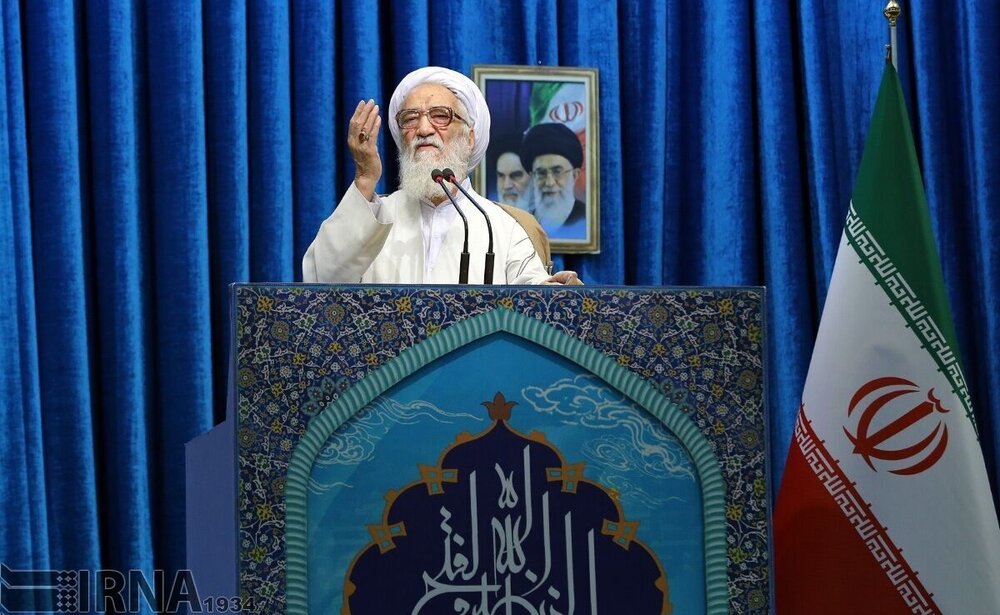Cleric warns Iraqi, Lebanese nations of enemy’s plots

TEHRAN – Tehran Friday prayer leader Ayatollah Mohammad-Ali Movahedi Kermani has warned the Iraqi and Lebanese nations of the enemy’s conspiracies against their countries.
“The people of Iraq and Lebanon should not take the security of their country for granted and they should be vigilant in the face of the enemy’s conspiracy to create sedition and rift among different ethnicities and groups in these two countries,” Movahedi Kermani said on Friday, addressing worshippers.
He said the enemy is always waiting for the right time to foment unrest in the region.
He also said the main problems of the Iraqi and Lebanese people are economic issues and mismanagement.
Iraq and Lebanon have been the scene of protests recently.
At the start of October, street protests erupted in several Iraqi cities over unemployment and a lack of basic services.
An official investigation found that a total of 157 people, including civilians and security forces, had been killed in the first round of protests in the capital and other cities.
The protests resumed on October 25 after a pause of about two weeks. The gatherings have turned violent at some points over the past days, with conflicting unofficial reports of fatalities.
Iraqi President Barham Salih said on Thursday the country’s embattled Prime Minister Adel Abdul-Mahdi is ready to step down if a replacement is found, emphasizing that a snap parliamentary election will be held once a new electoral law is passed.
In Lebanon, the protests first began on October 17, hitting Lebanon at a time of worsening financial crisis — banks were closed for a 10th day on Tuesday along with schools and businesses.
Embattled Lebanese Prime Minister Saad Hariri submitted his resignation on Tuesday evening as people remained on the streets across Lebanon for anti-government demonstrations against the country’s economic crisis.
Lebanese Parliament Speaker Nabih Berri said the resignation of the incumbent government led by Hariri would not solve the deep social and economic crisis in the country, and would further complicate the situation.
MH/PA
